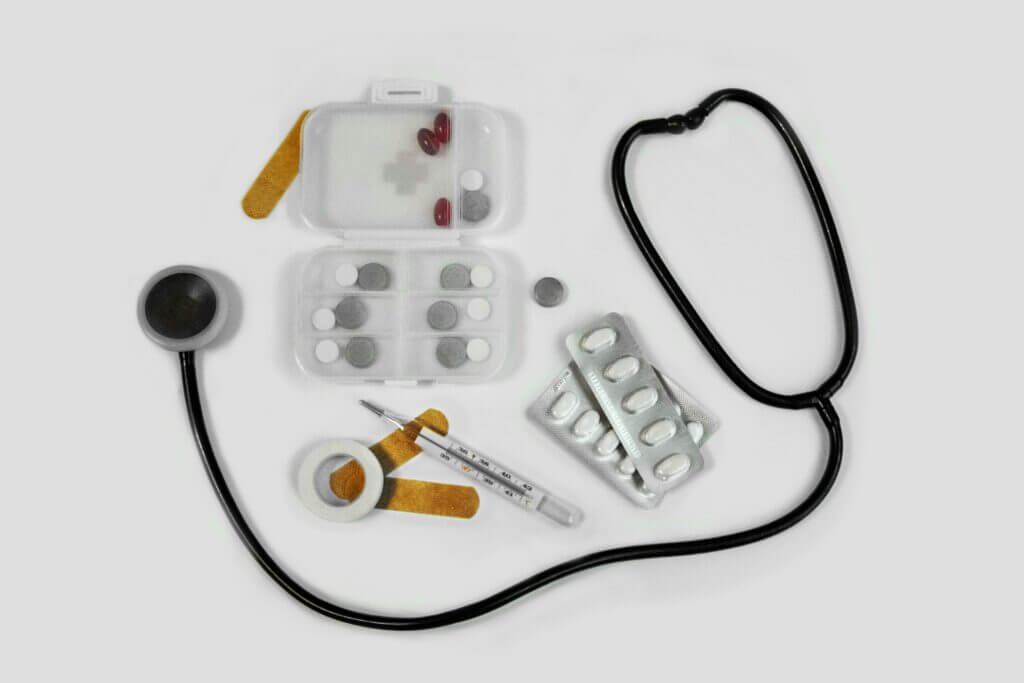
Domiciliary Care Allowance: Everything You Need to Know
1. Introduction to Domiciliary Care Allowance (DCA)
Domiciliary Care Allowance (DCA) is a vital monthly payment provided to parents and guardians who are responsible for the care of children under 16 with severe disabilities. Unlike many other welfare payments, DCA is not means-tested, which means that eligibility is not dependent on your family’s financial situation. Instead, it is determined by the level of care and attention your child requires due to their physical or mental impairment.
This allowance is designed to provide financial support to families who need to give substantial care to their child, far beyond what would typically be required for a child of the same age. In this blog, we will explore the qualification criteria, application process, payment rates, and additional benefits associated with DCA, as well as how to transition to other supports as your child reaches 16 years of age.
2. How to Qualify for Domiciliary Care Allowance
To qualify for Domiciliary Care Allowance, your child must meet several key criteria. These criteria ensure that the allowance is granted to children with significant care needs that are expected to persist over time.
2.1 Key Eligibility Requirements
- Age: The child must be under the age of 16.
- Disability Severity: The child must have a severe physical or mental disability. This disability must be likely to last for at least one year and must require continuous care and attention beyond what is normally needed by children of the same age.
- Care Needs: The focus is not on the type of disability but the level of care the child needs. The child must require substantial care for daily living.
- Residency: The child must be ordinarily resident in Ireland and live with the person claiming DCA for at least five days a week.
There are exceptions for children in part-time residential care, where they can still qualify for a half-rate payment if they spend at least two days a week at home.
2.2 The Role of the Carer
The person claiming DCA must be the primary carer for the child, providing the majority of their care needs. Additionally, the claimant must be habitually resident in Ireland, meaning that they regularly live and work in the country.
3. Medical Criteria for DCA
To assess a child’s eligibility for DCA, the Department of Social Protection uses specific medical criteria. The key point is that the child’s eligibility is not based on their diagnosis but on the level of care they require.
3.1 What Constitutes Severe Care Needs?
A child must require ongoing care and attention substantially above what would normally be expected for their age. This could include care related to:
- Personal care: Assistance with dressing, bathing, feeding, etc.
- Communication: Support with speech, hearing, or other communication issues.
- Behaviour: Managing behavioural challenges that require constant attention.
- Safety: Supervision to prevent self-harm or harm to others.
- Sensory issues: Support for sensory processing challenges, such as hypersensitivity to sounds or light.
3.2 Medical Reports and Assessment
The medical assessor at the Department of Social Protection evaluates the child’s eligibility based on:
- The child’s medical history and supporting documentation.
- A medical report completed by the child’s GP or relevant specialist.
- The parent’s description of the child’s care needs, which is an essential part of the application.
4. Payment Rates and Additional Benefits
4.1 How Much is Domiciliary Care Allowance?
The current rate for Domiciliary Care Allowance is €340 per month, increasing to €360 per month in January 2025 following Budget 2025. Payments are made on the third Tuesday of every month for the current month.
4.2 Budget 2025 Changes
In November 2024, a once-off payment of €400 will be issued to all DCA recipients. This payment is to assist with cost-of-living expenses and will be made in addition to the regular monthly payment. Only one payment will be made per household, even if the family qualifies for multiple payments.
4.3 Additional Benefits for DCA Recipients
Parents who receive DCA are also automatically entitled to the Carer’s Support Grant, a yearly payment made in June. For 2024, this grant is €1,850 per carer. If you are eligible for DCA in June, this payment is made automatically.
5. How to Apply for DCA
Applying for Domiciliary Care Allowance requires careful documentation and supporting reports to ensure that the child’s care needs are clearly understood by the assessors.
5.1 Filling Out the Application
The application form, Dom Care 1, is available for download, or you can request a paper copy from the Department of Social Protection. The form consists of several sections:
- Parts 1-5: Completed by the parent or guardian, including personal details and descriptions of the child’s care needs.
- Parts 6-7: Completed by the child’s GP or relevant specialist, including a detailed medical report.
It is important to include any additional specialist reports that highlight the child’s specific needs.
5.2 Optional DomCare3 Form
For children with Pervasive Developmental Disorders (PDD), such as autism or Asperger’s Syndrome, parents may submit a Dom Care 3 form. This form provides additional detail about the child’s condition and their specific care needs. While not mandatory, it can strengthen the application.
6. Appealing a DCA Decision
If your application is unsuccessful, don’t be discouraged. You can appeal the decision within 21 days to the Social Welfare Appeals Office.
6.1 Strengthening Your Appeal
In your appeal, focus on providing more detailed descriptions of the extra care your child requires. It is essential to emphasize the daily challenges you face as a carer and how your child’s care needs exceed those of children their age.
7. DCA and Hospital Stays
In cases where a child is hospitalized, parents can continue receiving DCA for up to 26 weeks in a 12-month period if the child is receiving medical treatment. For newborns born after January 2023, DCA can be paid for up to 18 months while they are in hospital.
8. Caring for More Than One Child
There is no limit to the number of children you can claim DCA for, meaning that families with multiple children who meet the criteria can receive the allowance for each child.
9. DCA and Disability Allowance Transition at Age 16
DCA stops when your child turns 16, and your last payment will be for the month of their 16th birthday. Three months before this milestone, the Department of Social Protection will notify you about the transition to Disability Allowance (DA).
9.1 What is Disability Allowance?
Disability Allowance is a means-tested payment for people over 16 with disabilities. The eligibility criteria for DA are different from those for DCA, and your child must apply in their own right. It’s important to apply a few months before the child’s 16th birthday to allow time for the application to be processed.
10. Medical Card Eligibility for DCA Recipients
All children receiving DCA are automatically entitled to a non-means-tested medical card. If your child does not already have a medical card, you can apply online through the HSE website or submit a paper application.
11. Conclusion: The Importance of Domiciliary Care Allowance
Domiciliary Care Allowance provides essential financial support to families caring for children with severe disabilities, ensuring that these children receive the care and attention they need. By understanding the qualification criteria, application process, and available benefits, parents can secure the support they need to manage the challenges of providing ongoing care. If you believe your child is eligible, apply early, and don’t hesitate to appeal a decision if needed.
Frequently Asked Questions
Domiciliary Care Allowance is a monthly payment for parents or guardians of children under 16 with severe disabilities who require significant, ongoing care beyond that of other children their age. It is not means-tested, meaning income does not affect eligibility.
The current rate for DCA is €340 per month, which will increase to €360 per month in January 2025. Payments are made on the third Tuesday of every month.
No, DCA is not means-tested. Your family’s financial situation does not affect your eligibility for this allowance.
To qualify, your child must:
- Be under 16 years old
- Have a severe physical or mental disability that requires substantial ongoing care for at least one year
- Live with you for at least five days per week
- Be ordinarily resident in Ireland
Your child must have a disability that requires ongoing care and attention significantly above what a child of the same age typically needs. The focus is on the level of care required, not the specific diagnosis.
You can apply by filling out the DCA application form (Dom Care 1). You’ll need medical reports from your GP or specialists and detailed descriptions of your child’s care needs. Additional forms, like the DomCare3, can also be submitted for children with pervasive developmental disorders.
Yes, if your application is denied, you can appeal the decision within 21 days. Make sure to provide detailed information on your child’s care needs to strengthen your appeal.
Yes, there is no limit to the number of children for whom you can claim DCA, provided each child meets the eligibility criteria.
DCA payments stop when your child turns 16. At this point, your child can apply for Disability Allowance (DA) in their own right. The qualifying conditions for DA differ from those of DCA, and it is a means-tested payment.
Yes, all children receiving DCA automatically qualify for a non-means-tested medical card. If your child does not have a medical card yet, you can apply online via the HSE website.
Yes, you can continue receiving DCA if your child is hospitalized for up to 26 weeks in a 12-month period. If your baby is hospitalized immediately after birth, you can receive DCA for up to 18 months.
In addition to the monthly DCA payment, recipients automatically qualify for the Carer’s Support Grant, which is paid in June each year. The current rate is €1,850 per year.
More Tax Tips

Claiming Tax Back on Dental Expenses
Did you know you can claim tax back on your dental expenses in Ireland? Many taxpayers are unaware that they can receive tax relief for certain non-routine dental treatments.

Home Carer Tax Credit
The Home Carer Tax Credit provides essential financial relief for married couples or civil partners where one partner stays at home to care for a dependent person.

Tax Tips on Maintenance Payments in Ireland
Learn all about maintenance payments in Ireland, including tax implications, legal requirements, and practical tips for both payers and recipients.

Essential Guide to Claiming Medical Expenses
Medical expenses can significantly impact your finances, but understanding the tax relief available can alleviate some of the financial burden.
3 out of 4 PAYE workers are due a refund, claim yours today!